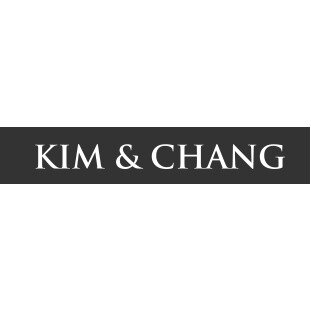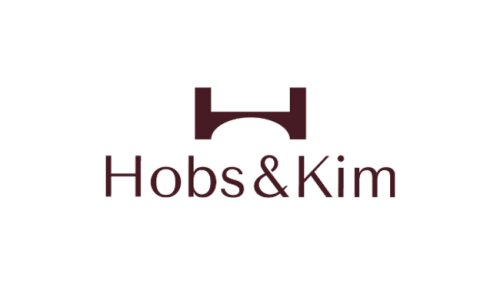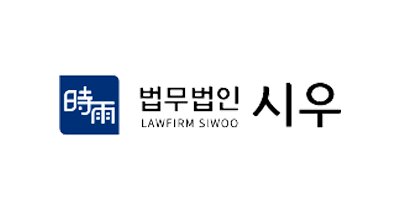Best Corporate Governance Lawyers in South Korea
Share your needs with us, get contacted by law firms.
Free. Takes 2 min.
Or refine your search by selecting a city:
List of the best lawyers in South Korea
About Corporate Governance Law in South Korea
Corporate governance in South Korea refers to the systems, processes, and regulations by which companies are directed and controlled. It involves balancing the interests of many stakeholders, including shareholders, management, customers, suppliers, financiers, government, and the community. South Korea’s corporate governance landscape has evolved significantly in recent decades, especially in response to the Asian financial crisis of the late 1990s and ongoing global reforms. The emphasis has been on increasing transparency, accountability, and shareholder protection within Korea’s unique business culture, which is characterized by large family-controlled conglomerates known as chaebols.
Why You May Need a Lawyer
Seeking legal advice in corporate governance matters is crucial for a range of reasons. Individuals and corporations often consult lawyers when establishing or restructuring businesses, especially given the complex regulations and unique ownership structures common in South Korea. Common situations include drafting or amending articles of incorporation, handling disputes between shareholders and management, navigating regulatory investigations, ensuring compliance with financial reporting requirements, and conducting due diligence for mergers and acquisitions. A lawyer specializing in corporate governance can help mitigate risks, facilitate negotiations, and represent clients before regulatory authorities or in court.
Local Laws Overview
South Korea’s primary laws governing corporate governance are found in the Korean Commercial Act (KCA), the Financial Investment Services and Capital Markets Act (FSCMA), and related regulations. The KCA outlines the rules for company formation, board structure, and shareholder meetings, while the FSCMA regulates disclosure obligations and capital market activities. Key aspects of South Korea’s corporate governance include requirements for boards to have outside directors, the establishment of audit committees for certain companies, specific procedures for shareholder general meetings, and strict rules regarding the disclosure of information to protect minority shareholders. Over recent years, there have been reforms aimed at enhancing board independence, improving transparency in decision-making, and strengthening minority shareholder rights.
Frequently Asked Questions
What types of companies are subject to corporate governance regulations in South Korea?
Most corporate governance regulations apply to publicly listed companies, but private companies must also comply with key provisions of the Korean Commercial Act. Regulation is more stringent for larger corporations, especially those listed on the Korea Exchange (KRX).
What is the role of outside directors in South Korea?
Outside directors are required for large corporations and listed companies. Their main role is to provide independent oversight, check the powers of management, and protect shareholders by bringing an objective perspective to board decisions.
Are audit committees mandatory in Korean companies?
Yes, companies listed on the Korea Exchange and large companies with assets exceeding a specified threshold are required by law to establish audit committees to oversee financial reporting and internal controls.
How are shareholders protected under Korean law?
Minority shareholders benefit from various protections, including the right to call extraordinary shareholders’ meetings, file derivative lawsuits, vote on key business decisions, and demand the inspection of corporate records.
What frameworks exist to disclose corporate information?
Korean law requires periodic and timely disclosure of financial statements, material business events, and insider dealings. Listed companies must make disclosures through the Korea Exchange and regulatory filings.
What is a chaebol, and how do they affect corporate governance?
Chaebols are large family-controlled business groups that dominate the Korean economy. They present unique challenges for governance due to complex cross-shareholding structures and concentrated decision-making power, which the government has sought to regulate more effectively in recent years.
Can foreign investors participate in governance processes?
Yes, foreign shareholders are afforded most of the same rights as domestic investors, including voting rights and the ability to propose agenda items or bring lawsuits, subject to certain procedural requirements.
What are common compliance issues in Korean corporate governance?
Frequent issues include inadequate board independence, insufficient protection for minority shareholders, breaches of disclosure requirements, and conflicts of interest in related-party transactions.
How are disputes regarding corporate governance resolved?
Disputes can be resolved through negotiation, mediation, or litigation in Korean courts. In some cases, regulatory authorities may intervene if laws or listing rules have been violated.
What are recent trends in South Korean corporate governance?
Recent trends include increasing board diversity, stricter enforcement against unfair practices, efforts to address excessive family control in chaebols, and moves to align with global corporate governance best practices.
Additional Resources
Those seeking more information or support with corporate governance issues in South Korea may find the following organizations helpful:
- Financial Services Commission (FSC) - Regulates financial markets and corporate disclosures
- Fair Trade Commission (KFTC) - Addresses competition issues and chaebol regulation
- Korea Exchange (KRX) - Sets compliance requirements for listed companies
- Korean Bar Association - Offers legal professional resources
- Korea Listed Companies Association (KLCA) - Provides corporate governance guidance to listed firms
Next Steps
If you believe you need legal assistance with corporate governance issues in South Korea, consider the following steps:
- Assess your situation and gather relevant documentation, such as your company’s articles of incorporation or shareholder records
- Identify the area of concern, such as regulatory compliance, shareholder disputes, or audit processes
- Consult a qualified attorney specializing in corporate governance who has experience with South Korean laws and business practices
- Prepare a list of questions and clarify your objectives before your legal consultation
- Follow your lawyer’s guidance on remedial actions, compliance steps, or dispute resolution processes
A proactive approach to legal issues can help safeguard your interests and ensure your company is managed in line with the latest regulations and best practices in South Korea.
Lawzana helps you find the best lawyers and law firms in South Korea through a curated and pre-screened list of qualified legal professionals. Our platform offers rankings and detailed profiles of attorneys and law firms, allowing you to compare based on practice areas, including Corporate Governance, experience, and client feedback.
Each profile includes a description of the firm's areas of practice, client reviews, team members and partners, year of establishment, spoken languages, office locations, contact information, social media presence, and any published articles or resources. Most firms on our platform speak English and are experienced in both local and international legal matters.
Get a quote from top-rated law firms in South Korea — quickly, securely, and without unnecessary hassle.
Disclaimer:
The information provided on this page is for general informational purposes only and does not constitute legal advice. While we strive to ensure the accuracy and relevance of the content, legal information may change over time, and interpretations of the law can vary. You should always consult with a qualified legal professional for advice specific to your situation.
We disclaim all liability for actions taken or not taken based on the content of this page. If you believe any information is incorrect or outdated, please contact us, and we will review and update it where appropriate.
Browse corporate governance law firms by city in South Korea
Refine your search by selecting a city.
















